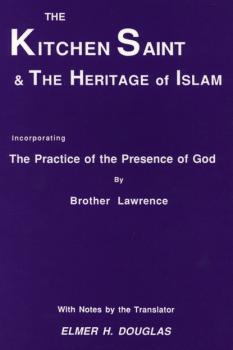ТОП просматриваемых книг сайта:
Brother Lawrence
Список книг автора Brother LawrenceThe Kitchen Saint and the Heritage of Islam - Brother Lawrence
Princeton Theological Monograph SeriesАннотация
Spirituality meets philosophy in the Brother Lawrence of the Resurrection collection «The Practice of the Presence of God and the Spiritual Maxims.» This challenging yet fruitful read describes Brother Lawrence's philosophy that a relationship with God is more important than the service and work done in God's name. Through a series of letters to nuns and other monks, he states that people become caught up in trying to prove their worth to God. According to Brother Lawrence, people should instead focus on knowing God's love. He attests that this love was the strongest experience in the Carmelite monk's life. While «The Practice of the Presence of God» is a short read, it makes up in theology what it lacks in length. Audiences read through Brother Lawrence's text multiple times because of his rich, complex, and uplifting ideas. His spiritual conversion in his early 20's, followed by his astounding religious insight as a monk, provides readers with thought-provoking ideas. He encourages them to question their own lives and see if they truly have a relationship with God. «The Spiritual Maxims» also details Brother Lawrence's philosophy about God's presence in daily life. These short but thoughtful texts can be read throughout the day for an inspirational boost. «The Practice of the Presence of God and the Spiritual Maxims» is no doubt a book that has changed many Christians' lives and is a must-read for anyone seeking spiritual or philosophical growth.
Аннотация
“The Practice of the Presence of God” is a compilation of letters and records of conversations with 17th-century Carmelite monk Brother Lawrence compiled by his contemporary, Father Joseph de Beaufort. An influential work of Christian spirituality “The Practice” describes Brother Lawrence’s philosophy that a relationship with God is more important than the service and work done in God’s name. Brother Lawrence focuses on seeing the love of God, his presence, in all aspects of daily life. In this short work an attempt is made to explain Lawrence’s method of acquiring this presence of God. According to Brother Lawrence it is only in acquiring this presence that one truly can have a relationship with God. Also included in this work is “The Spiritual Maxims”, a collection of thoughts intended to give daily inspiration and guidance towards living a more spiritual life. Together these classic works of Christian devotion give great insight into the life and spiritual philosophy of Brother Lawrence.
Аннотация
The original guide to «practicing the presence of God»
"We must not grow weary of doing little things for the love of God, who looks not on the great size of the work, but on the love of it."
In this classic work, which has instructed and inspired millions, a humble 17th-century monk reveals the secrets of daily, moment-by-moment fellowship with God. «In the way of God, thoughts count very little,» writes Brother Lawrence, who spent much of his monastic life in the kitchen. «Love does it all.» Full of realistic honesty, friendliness, and simplicity, Brother Lawrence shows that it is possible to meet God amongst the pots and pans—in the ordinary, daily events of life. This edition, rendered from the original French into graceful, contemporary English, will nourish and delight all those who seek to practice the presence of God.
"We must not grow weary of doing little things for the love of God, who looks not on the great size of the work, but on the love of it."
In this classic work, which has instructed and inspired millions, a humble 17th-century monk reveals the secrets of daily, moment-by-moment fellowship with God. «In the way of God, thoughts count very little,» writes Brother Lawrence, who spent much of his monastic life in the kitchen. «Love does it all.» Full of realistic honesty, friendliness, and simplicity, Brother Lawrence shows that it is possible to meet God amongst the pots and pans—in the ordinary, daily events of life. This edition, rendered from the original French into graceful, contemporary English, will nourish and delight all those who seek to practice the presence of God.
Аннотация
"Believe me, count as lost each day you have not used in loving God." — Brother LawrenceThis simply written little book about prayer and Christian life conveys a humble man's thoughts on the importance of experiencing God's love. A seventeenth-century French Carmelite, Brother Lawrence spent much of his time in the kitchen of a Paris monastery. Of this experience, he said: «The time of business does not with me differ from the time of prayer, and in the noise and clatter of my kitchen … I possess God in as great tranquility as if I were upon my knees at the blessed sacrament.»A collection of Lawrence's messages given to those who lived around him, this book contains The Practice of the Presence of God and The Spiritual Maxims. Both have much to say to modern man about living a spiritual life in a busy world. More widely read today than ever, these two classics — each an easily accessible primer of practical Christian devotion — comprise a particularly good selection with which to begin spiritual studies.






